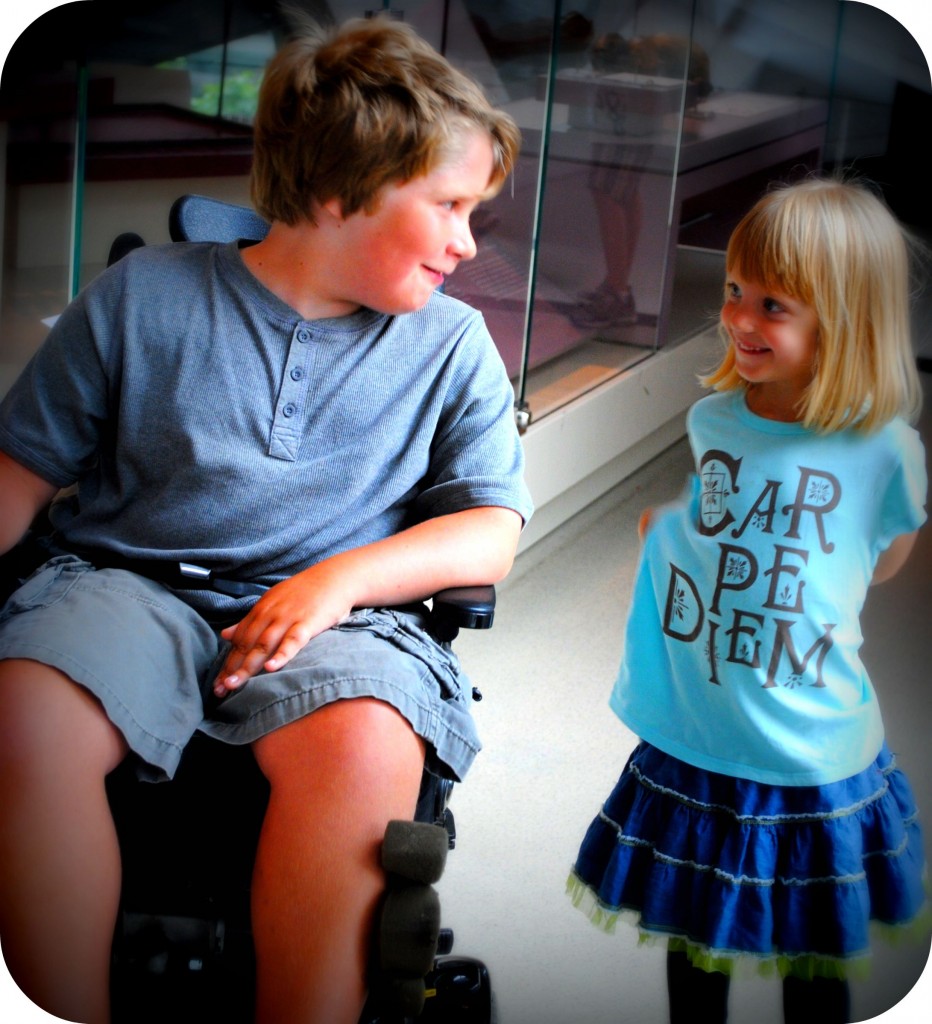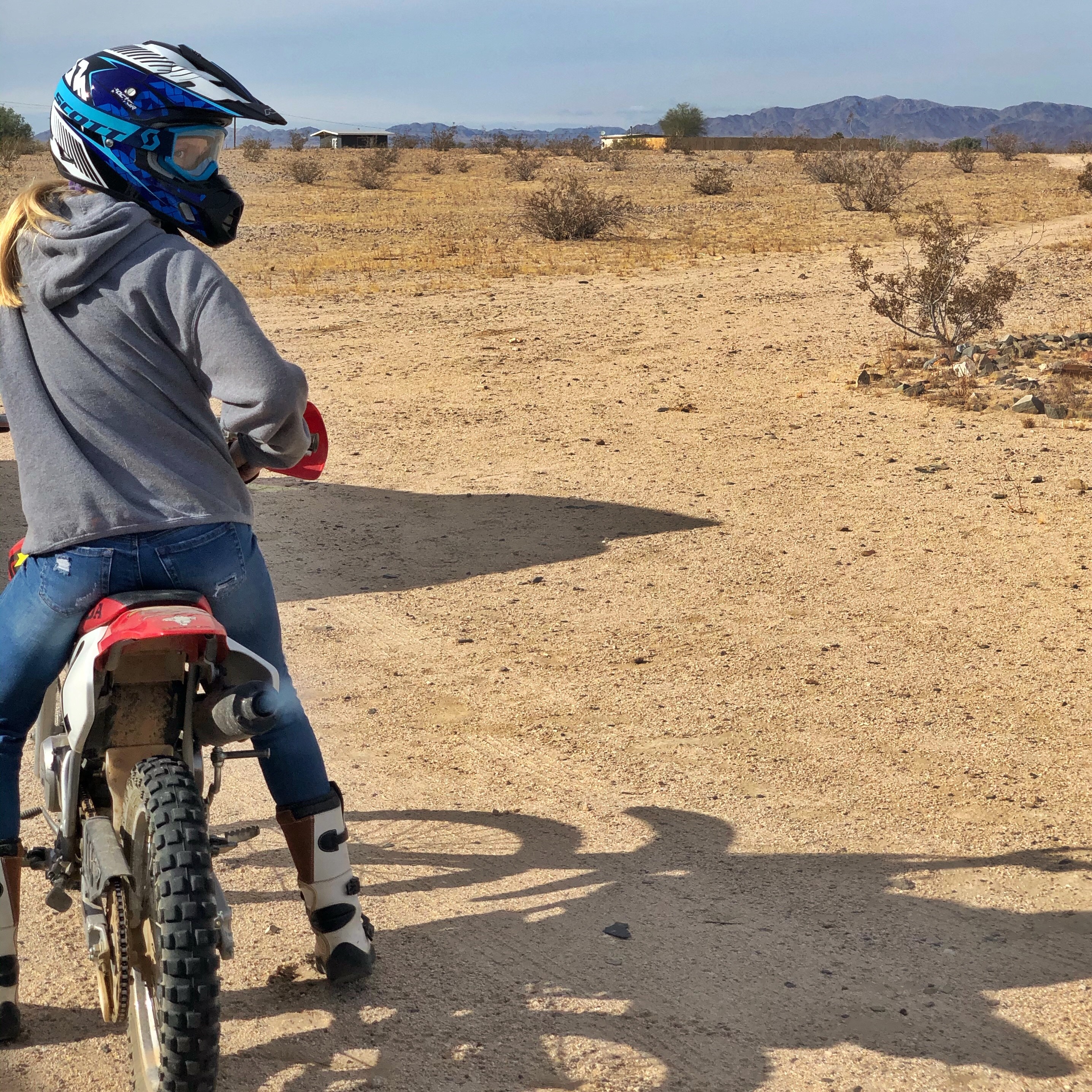I wrote this post a couple of years ago, in a moment of desperate hand-wringing about what it means to do good online. I’ve been thinking about it a lot in recent weeks, as I’ve dug further into social good efforts, here and at Babble. I love using social media for social good, and exploring what it means to use social media for social good, and finding more and better ways to use social media for social good – but the question always emerges, ‘isn’t this good for you, too? And doesn’t that complicate things?’ The answer to which is, yes, and, maybe. And also: see below.
Here’s the thing about doing good, and it’s a moral problem that philosophers and theologians have worried over for millenia: is there such a thing a pure altruism? Do we ever – can we ever – really do good without considering – even just a little teeny eeny bit – how doing such good is for our own good?
I’ve taught philosophy. I’ve sat in rooms with earnest 19 year olds and looked them in the eye and said, we are always concerned for our own good. Always. Unless we are Jesus or Socrates, and even then. Then I’ve sat back and let them yell at me.
But it’s true, I think. Whatever good we do, we do for some reward. We do it for a place in heaven, or to boost our reputation, or to please our loved ones, or to just please ourselves, to feel good. When Socrates was asked by Glaucon to explain whether any man would be good if doing so guaranteed pain and censure and misery – Glaucon’s point being that man (his term) is only good because society tells him to be, or because he gains some other reward – Socrates responded with an extended discussion of how the good soul is good in itself, etc. But as I used to tell my students during these tricky discussions of Plato’s Republic, we’re still left with a good. Socrates’s objective, after all, is to persuade Glaucon that the truly good life – the philosophic life, in his view – is worth making all manner of sacrifice to pursue. Glaucon needs to be seduced to such a life; he will only pursue it if he thinks that it is best for him.
This is true for all of us. Why we think a certain action/effort/choice/life is best differs from community to community, person to person, but still. We only do what serves us. We are not, none of us, truly selfless.
I think about this a lot in the context of blogging. I have, in the past, written about my nephew, Tanner, who is dying of Duchenne’s Muscular Dystrophy. I have told myself that I write about him to raise awareness of, and money for, DMD. I have told myself that I write about him to work through my feelings about what he is going through and what my sister is going through and what our family is going through. I write about him in the service of a greater good, but I also write about him for me, because it serves me. It makes me feel better. It makes me feel like I’m doing something, like I’m contributing in some way to his life, to the cause. It eases the strain on my heart.
And I write a lot, now, about other causes. About maternal health. About bringing about the end of maternal transmission of HIV. About the welfare of women and mothers in other parts of the world. About the empowerment of girls. About post-partum depression. About how storytelling can serve all these causes. About how the Internet can serve all these causes.
And all of this does some good. I know this. It’s why I do this. But, but… writing about these things means other things, too. It brings opportunities, adventures. In the case of Tanner, it boosts blog traffic, and comments. And that’s where I start to worry. Because although increased blog traffic means that more people are seeing his story, it also means that more people are seeing me, and I never want my motivations to become confused in this regard. This is a worry with telling any story that is not my own, when that story is intended to serve some greater good, but in Tanner’s case in particular, it’s a pain point. I never, ever, want to write about Tanner to get attention for myself, not even of that motivation is sub-conscious, buried. I never want his pain to be good for me. And so I’ve written about him less and less, because things are getting worse for him, the story is getting sadder, and I do not do not do not want to exploit that, not even to just make myself feel better, to talk it out, as they say.
But it’s a fine and blurry line, because his story could help others and raising awareness is always good, right? And so what if it serves me? Why do I worry?
I worry because I feel a little sick whenever I notice that Tanner is good for traffic. I feel sick even writing the words, Tanner is good for traffic.
I thought about this when I was asked today, by more than a few people, whether I would use my blogging platforms to raise money for Haiti. Lots of people are donating a dollar for every comment that they get, said this person and another and another. The Pioneer Woman is doing it. Are you going to do it?
Wow, I thought. I am not the Pioneer Woman, but the comparison is nice. And: that would probably yield a lot of comments. I’m donating anyway, but: comments. Traffic. Those are good. For me.
And then I felt a little sick. Haiti doesn’t need my blog to get more comments. Haiti needs my money. Haiti also, arguably, could benefit from me getting the word out to my community, even if my community is smaller that the Pioneer Woman’s. Haiti will certainly benefit from the Pioneer Woman getting the word out to her many millions of readers; the discursive-slash-awareness benefit of the Pioneer Woman pegging a fundraising campaign to her blog is, no doubt, significant. But I am not the Pioneer Woman. Would I really be raising awareness, or would I just be boosting my own numbers? What would Haiti get out of this? Would I do the same thing if it were Tanner? Does it matter? Arguably, it doesn’t matter what I get out of this, either way, whether I get something or nothing at all. But I worry about this stuff, so.
I responded to one person, and then another, that I wouldn’t be doing it. Then I tweeted it instead of responding to everyone else. Which, I never recommend doing. Because, invariably, if you make a statement about a decision that you’ve made that reflects upon the decisions of others, others will get mad at you for judging by implication others whose decisions are different from yours, which always, always sucks.
I said in my tweet, referring to Haiti and fundraising and the decision to not peg my donation to comments: this isn’t about me. And somebody said, by saying that, you’re implying that for some people, it is about them. Which, yes. I was implying that. What I wasn’t implying – regardless of my own choice – was that that’s wrong. I was just implying that it is, and stating that I wanted to choose differently, for me. Because, yes, this is what I think: that when you pursue some social good in a manner that provides a clear benefit to you, you are, in some way, making it about you. You are serving your own good. You are making choices as to how to act for the greater good with very clear reference as to how so doing will benefit you. We all do this. We all must do this. We’re self-interested creatures, and as every political philosopher worth his or her salt since Socrates has argued, we would just never get anything done as communities if we didn’t locate our own good in those communities. And we would never do anything good as individuals if we didn’t see some benefit – large or small, material or immaterial – to doing good. So looking to our own good in the service of some greater good isn’t wrong. I’d have to return my Tom’s Shoes and all those products with pink ribbons if I thought it were.
But I think that it is important that we examine our motivations whenever our own good becomes a factor – a factor that we can see and recognize as such – in deciding how we will act. I think that it is important, to living well, to always examine our motivations – am I doing this for me, or for the cause? – and to ask ourselves whether we are serving the best good when we take our own good into consideration, whether there is a harmony between those goods, or whether it just doesn’t matter. That answer won’t be the same in all cases. Some people – the Pioneer Woman, for example – will accomplish tremendous good by pegging her fundraising to her blog because she will raise awareness and encourage others. Others will accomplish tremendous good doing the same thing because they will exercise new social media muscles and learn how to use their platforms for good. Some people will just be doing it to drive traffic – or to raise their Twitter profile, or whatever – but they’ll still be raising money. I might have done some good with it, too – regardless of my motivations – but I worried myself into a corner about those motivations and then decided that I was most comfortable writing a quiet check.
Arguably, none of this matters. The ends justify the means, as Machiavelli is so often misquoted as saying. And as long as we’re all talking about these causes, these issues – and putting ribbons on our avatars and badges on our blogs and marking ourselves as involved and making it a good thing to be involved – that’s all good, right? It is all good. But it doesn’t mean that we shouldn’t sometimes stop and ask ourselves why we’re doing something. And maybe pause, sometimes, and make the choice that is less about us and more about the greater good, even if we could still somehow get a benefit for ourselves. To prove to ourselves that it’s not always about us and our goods and getting something for ourselves out of everything that we do.That even though we’re not selfless, we can still strive in that direction.
For our own good.




